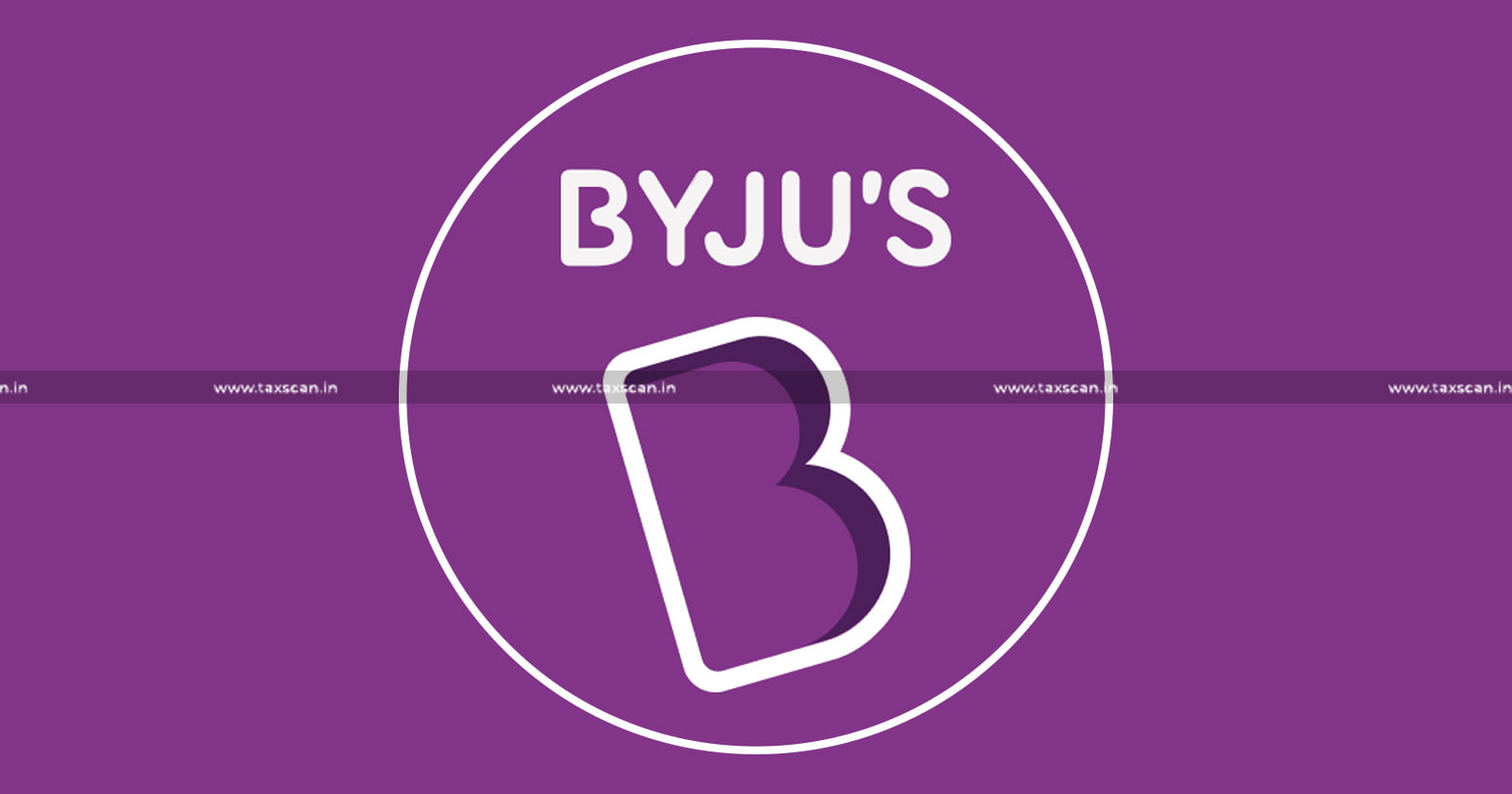SC Orders Escrowed 158 Crore in Byju’s matters to be Deposited with CoC, observes CIRP Violations in NCLAT Order [Read Judgement]
The Supreme Court had previously reserved its verdict on the plea filed by US-based lender Glas Trust Company LLC

SC Orders Escrowed 158 Crore in Byjus – Deposited – CoC – CIRP Violations in NCLAT Order – TAXSCAN
SC Orders Escrowed 158 Crore in Byjus – Deposited – CoC – CIRP Violations in NCLAT Order – TAXSCAN
The Supreme Court of India delivered a notable judgment setting aside the ruling of the National Company Law Appellate Tribunal (NCLAT) in the insolvency proceedings against Ed-Tech giant Byju’s, while ordering the escrowed amount of Rs.158 Crore paid by Byju’s to the Board of Control for Cricket in India (BCCI) to be deposited with the Committee of Creditors (CoC) in light of identified violations of the Corporate Insolvency Resolution Process (CIRP).
The pronouncement was made by the 3-Judge Bench of the Supreme Court of India, headed by Chief Justice of India, D Y Chandrachud and comprising J B Pardiwala and Manoj Misra while jointly adjudicating a Civil Appeal and Special Leave Petition filed by GLAS Trust Company LLC against Byju Raveendran, founder and CEO of beleaguered Indian Study Platform Byju’s among others.
Read More: Non-Application of Mind in Settlement Case: Supreme Court set to remand Byju’s Case Back to NCLAT
The factual matrix of the case follows a ‘Team Sponsor Agreement’ dated 25 July 2019 entered into between Byju’s and the Operational Creditor BCCI for sponsorship of the Indian National Cricket Team. A subsidiary company of Byju’s had availed a loan facility of USD 1,200,000,000 under a credit and guarantee agreement for which the Appellant is the administrative agent.
Master GST Notice Replies – Drafting 20 Notices, Including Appeals - Register Now
The BCCI had moved a Petition before the National Company Law Tribunal (NCLT) under Section 9 of the Insolvency and Bankruptcy Code, 2016 (IBC) against Byju’s alleging default in payment of operational debt of Rs.158 crore payable in light of the Sponsorship Agreement.
NCLT admitted the Petition and initiated CIRP against the arraigned Respondent while imposing moratorium under Section 14 of the IBC and appointing Interim Resolution Professional.
Subsequently, it was submitted before the NCLAT in appeal, that Byju’s had cleared the operational debt of Rs.158 Crore towards BCCI, and that a statement for withdrawal of the Petition before NCLAT shall be duly filed by BCCI.
Master GST Notice Replies – Drafting 20 Notices, Including Appeals - Register Now
Such repayment of operational debt was resisted by the Appellant who submitted that the repaid 158 Crore had been derived from USD 533 Million, being the subject matter of a hedge fund-related Petition moved before a United States Bankruptcy Court in the district of Delaware.
It was further alleged that the Delaware Court passed a preliminary injunction restraining the US-based Subsidiary of Byju’s, Byju’s Alpha Inc. and Director Riju Raveendran from making any modifications to the contested $533 Million.
The NCLAT, in its judgment upheld the submissions of Riju Raveendran that the repayment had been made through funds individually generated by him and that the same does not violate any Order passed by the Delaware Court.
Master GST Notice Replies – Drafting 20 Notices, Including Appeals - Register Now
In the present case, Counsel for the Appellant, Kapil Sibal and Shyam Divan contested the discretionary power exercised by the NCLAT citing that the Tribunal failed to follow prescribed procedure for withdrawal and settlement under Section 12A of the IBC along with Regulation 30A of the CIRP Regulations 2016. Additionally, the Appellant submitted that CIRP cannot be dropped in light of a single creditor’s recovery, while numerous creditors stand prejudiced.
Dr Abhishek Manu Singhvi and Neeraj Kishan Kaul, appearing for Byju Raveendran submitted that the inherent powers under Rule 11 of the NCLAT Rules include the NCLAT’s faculty to withdraw CIRP, while parallelly contesting the Appellant’s Locus Standi in the present matter.
The Supreme Court observed that the withdrawal procedure of CIRP or settlement of claims is three-fold: (i) application for withdrawal be moved; (ii) the application has to be moved through the IRP; and (iii) it be placed before the NCLT for approval.
The Bench observed that none of these requirements had been undertaken prior to the judgment of the NCLAT. Moreover, the Apex Court observed that the Committee of Creditors had not yet been formed while the NCLAT rendered its judgment; additionally, the Court observed that the insolvency application is to be submitted by the IRP and not the parties themselves.
The Apex Court, while disposing of the present matters, affirmed that the inherent powers of NCLAT effectuated by Rule 11 of the NCLAT Rules cannot be used to subvert legal provisions, and thereby issued directions for the escrowed Rs 158 crore, along with accrued interest to be deposited with the CoC, who is to maintain the same in a separate escrow account until further developments in light of directions issuable by the NCLT.
Master GST Notice Replies – Drafting 20 Notices, Including Appeals - Register Now
This decision emphasizes the Court’s focus on maintaining legal integrity in insolvency proceedings, even in high-stake corporate settlements, safeguarding both operational creditors and other financial stakeholders involved.
To Read the full text of the Order CLICK HERE
Support our journalism by subscribing to Taxscan premium. Follow us on Telegram for quick updates


